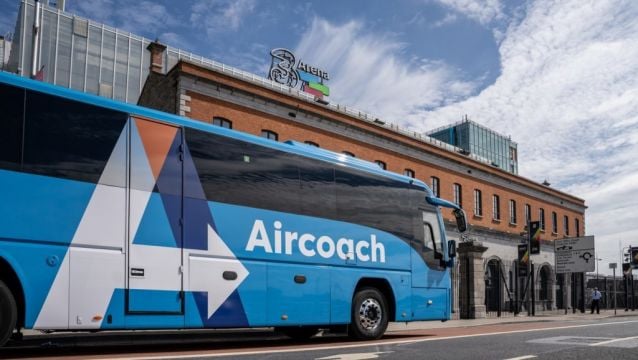Any measures in the upcoming budget with regard to transport should include the commercial sector, according to a spokesperson for Coach Tourism and Transport Council of Ireland (CTTC).
Brendan Crowley told RTÉ radio’s Morning Ireland “as long as cars are allowed to have such road share the journeys for buses won't improve”.
“At the moment it is quicker by far to use the bus, but that could be greatly improved again,” he added.
Mr Crowley said the Government’s measures to introduce a 20 per cent reduction in public transport fares as part of the cost-of-living package in the last budget did not extend to everybody across the country.
He pointed out that 52 per cent of all public service obligations in transport services actually happen in the Greater Dublin area.
“So in the rest of the country, anybody who relies upon a commercial company to provide their public transport cannot avail of that 20 per cent reduction.”
A report by the National Transport Authority indicated that the number of passengers using commercial bus services in Ireland rose by 84 per cent last year, but remains significantly below pre-Covid levels. The figures also revealed there were over 18.6 million passenger journeys on licensed public bus services in 2022.
While it represents a strong increase in passenger numbers during the first two years of the pandemic, the figure is still 39 per cent below the record number of 30.5 million passenger journeys in 2019.
Passenger numbers had fallen as low as 9.4 million in 2020 when bus services experienced a major reduction in capacity and demand due to travel restrictions imposed during the pandemic.
Excluding 2020 and 2021, which were severely impacted by the pandemic, the 2022 figure is the lowest recorded annual total of passenger journeys on commercial bus services since they were first compiled in 2013.
Mr Crowley said any budgetary measures for transport has to be for the whole country, not just a section of the community.
“It's for the Government to govern for the whole country, not just one group, so if you bring in a budgetary measure that only really is benefiting a small group, that's very discriminatory and unfair, and I believe that's an unintended consequence, to be fair.
“I think the Government has an opportunity to say, well, hold on, we have the technology, we're already doing this with the Young Adult card, we're already doing it with the free travel scheme, so that 20 per cent can be applied across the service we actually provide.
“It's important to note that over 40 per cent of all the public transport buses provided in the country are provided by commercial companies,” Mr Crowley said.
“Pre-Covid in 2019, we were up at 30 million passenger journeys per year. We're currently sitting at around 18 million. There are a number of factors at play here.
“During Covid, a lot of services around the country were suspended for a year because it just wasn't possible to run them, and many people may have found alternative ways of travelling and also new work habits.
“We would have carried many people in and out of major cities every day for work five days a week. This has reduced now for some people to maybe one or two days a week, many more people are now working remotely, so there is an impact that does actually affect our services.”







